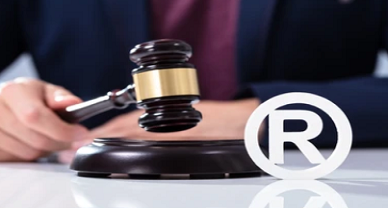INTRODUCTION
The matter at hand involves an appeal coming from the Senior Examiner at the Registrar of Trademarks’ office rejecting a trademark application. This appeal is covered by Section 91 of the Trade Marks Act of 1999. Ticona Polymers intended to register the term “COOLPOLY” for two product categories, however their application was denied for two reasons: the proposed mark lacked distinguishing characteristics, and the words within the mark were deemed descriptive of the product.
WHAT IS A TRADEMARK?
According to Section 2(1)(zb) of the Trade Marks Act, 1999, a trademark is defined as a symbol that may be graphically expressed and has the ability to differentiate one individual’s products or services from those offered by others. This broad category of trademarks includes signatures, names, labels, headers, and other features.
WHAT IS DISTINCTIVENESS AND DESCRIPTIVENESS IN TRADEMARKS?
Section 9(1) of the Trade Marks Act of 1999 explains the absolute reasons for rejecting a trademark application, stating unequivocally that a mark that clearly describes the characteristics or features of products and services is ineligible for trademark registration. Nevertheless, Section 9(1) not only enforces a complete ban on registering descriptive marks but also incorporates a provision that permits such marks to be registered if they have acquired distinct recognition through previous use or are recognized as well-known trademarks.
FACTS OF THE CASE
The case revolves around an appeal to the Delhi High Court under Section 91 of the Act, stemming from a trademark application rejection. In this application, the appellant sought to register the term “COOLPOLY” for two specific classes of products: Class 1, which pertains to plastic and carbon molding materials used for creating molded plastic items, and Class 9, encompassing molded heat sinks for computers, their components, and molded electrical conductors. The Senior Examiner at the Registrar of Trade Marks’ office declined this application on October 26, 2020. The primary grounds for rejection were objections raised under Sections 9(1)(a) and 11(1) of the Trade Marks Act. These objections focused on the distinctiveness of the mark and the availability of equivalent marks in the trademark registration.
APPELLANT’S CONTENTIONS
The legal counsel for the appellant stated that the well-established policy of not dissecting a trademark into its many components during the registration review is widely acknowledged. Although Section 17(1) of the Trademarks Act clearly indicates that this idea pertains to cases of trademark infringement, it also applies to evaluating registration eligibility with required adjustments. Because the act of registering contains inherent benefits such as protection against infringement, the principle also applies in this case.
RESPONDENT’S CONTENTIONS
According to the respondent’s legal counsels, it is well-established legal principle that a simple combination of two common phrases or abbreviations, even if never before used, cannot be regarded a newly coined phrase. The terms in question in this case were “COOL” and “POLY.” This principle holds as long as the combined phrase conveys an identical meaning to the average individual, whether through visual or auditory means, as the separate words in their regular form. This principle had been upheld in prior legal cases, including E. Griffiths Hughes Ltd. v. Vick Chemical Co. and A.R. Khaleel And Sons v. Registrar of Trade Marks In India.
DELHI HIGH COURT’S OBSERVATIONS
In delivering its judgment, Justice Hari Shankar of the Delhi High Court underscored a fundamental principle: the assessment of a trademark should consider it as a cohesive entity rather than disassembling it into its constituent parts. This principle, firmly grounded in Indian trademark law, is not confined solely to cases of trademark infringement but also extends to the stage of trademark registration.
With regard to the specific trademark under scrutiny, “COOLPOLY,” the court noted that this term lacks any apparent meaning within the English language and does not constitute a commonly used word. Consequently, it retains the capability to differentiate between the products of one entity and those of another if utilized as a trademark. The court also pointed out that the Registrar’s decision lacked clarification regarding the mark’s distinctiveness. Additionally, the court argued that even if the issue of descriptiveness had been raised, it would not be valid because “COOLPOLY” is a unique, newly coined word. Even when examining the words “COOL” and “POLY” individually, they do not describe the products covered by the Appellant’s application, such as plastic and carbon molding materials, in any way.
Consequently, the court overturned the Registrar’s decision, asserting that the Chief Examiner’s rationale for rejecting the mark lacked a legal foundation. The court instructed the Registrar to ensure the publication of the “COOLPOLY” trademark application in the Journal of Trade Marks.
ANALYSIS AND CONCLUSION
The “COOLPOLY” trademark case underscores the vital importance of evaluating trademarks as whole entities within the domain of intellectual property law. At the core of this ruling lies the Delhi HC’s firm support for the anti-dissection doctrine, affirming that trademarks must be evaluated as unified entities rather than deconstructing them into their constituent parts. The court’s decision in favour of the “COOLPOLY” trademark underscores the word’s absence of inherent meaning within the English language, a pivotal element in trademark distinctiveness. Significantly, the court rejects the idea of descriptiveness by asserting that “COOLPOLY” constitutes a freshly minted term. Even when examining its individual elements, “COOL” and “POLY,” they do not depict the goods encompassed in the application. This verdict not only reaffirms the necessity of holistic trademark evaluation but also highlights the broader role of trademarks in preserving the distinctiveness of brands and fostering innovation in the marketplace.
Author : Manya Manohar, in case of any queries please contact/write back to us via email to chhavi@khuranaandkhurana.com or at IIPRD.
REFERENCES
- Ticona Polymers, Inc. Vs. Registrar of Trademarks, 2023 SCC OnLine Del 1234
- The Trademarks Act, 1999
- E. Griffiths Hughes Ltd. v. Vick Chemical Co., AIR 1959 Cal 654
- A.R. Khaleel And Sons v. Registrar of Trade Marks In India, AIR 1963 Mys 122
- https://cleartax.in/s/trademark-act-1999

